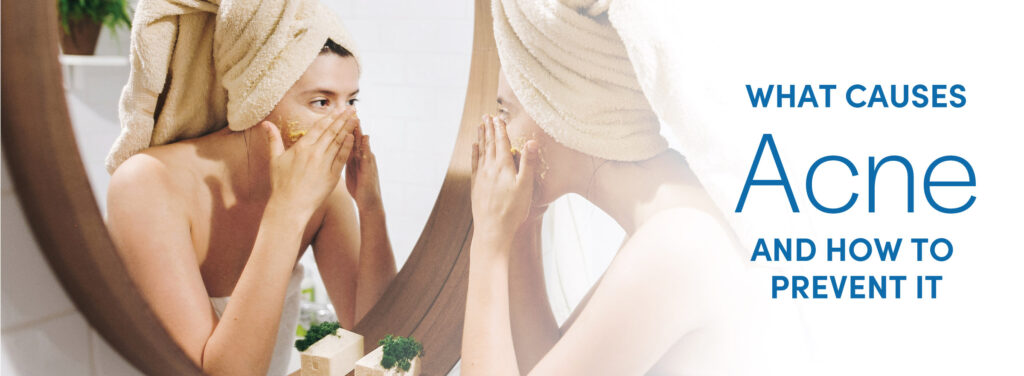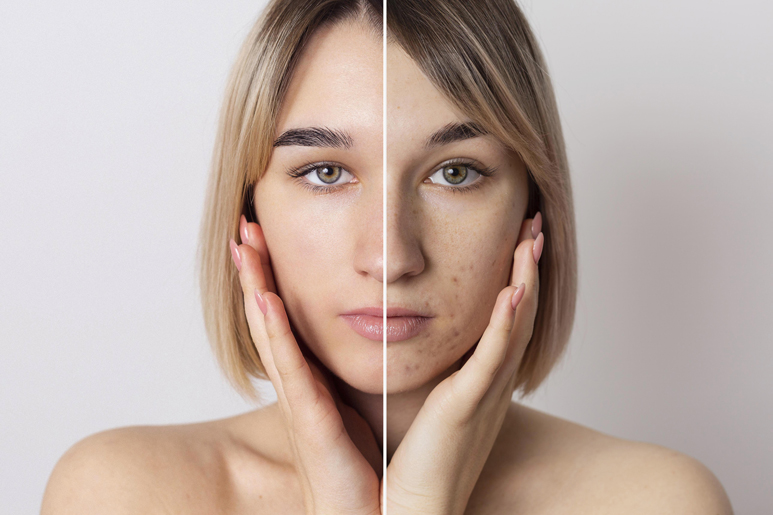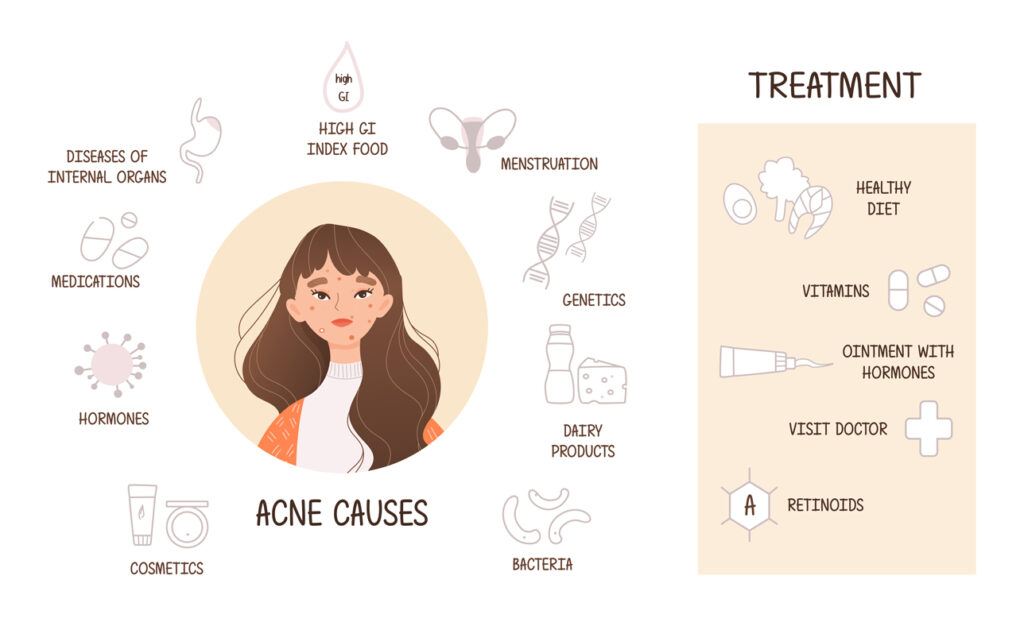What Causes Acne? Tips on How To Treat & Prevent

All of us experience a few pesky pimples from time to time but what if your case is more severe and considered chronic acne? With June being Acne Awareness Month and 50 million Americans currently affected by the condition, we figured we could shed some light.
Whether you’re trying to avoid the occasional zit or looking for answers on how to get your acne under control, read on to see what the main causes of it are and learn about treatment options and prevention.
WHAT IS ACNE?
Acne is a common skin condition, in fact, it’s the most common skin problem in the country. It shows up in the form of anything from red bumps, whiteheads and blackheads, to cysts and nodules. It’s most commonly found on the face but can also appear on shoulders, back, neck, chest, and upper arms.
WHAT CAUSES IT?

According to Medical News Today, dermatologists have identified different factors that can largely impact the appearance of acne:
· Your skin is producing too much oil: When your skin produces too much, your pores can clog up easier. If you have oily skin, you are more prone because your sebaceous glands in the skin are producing too much sebum, the oily, waxy substance that protects and hydrates the skin
· You have too many dead skin cells building up in your pores: when dead skin cells accumulate and don’t break away from the skin regularly, they start to collect in your pores/hair follicles. These combined with the body’s natural oils (sebum) can cause the pores to clog, resulting in pimples, whiteheads and blackheads
· The presence of a bacteria called Propionibacterium acnes (P. acnes): when the clogging of your pores builds up too much, they become a breeding ground for the bacteria. This bacteria turns sebum into fatty acids that activate inflammation in nearby skin cells, causing acne.
WAYS TO TREAT & PREVENT

Many methods of treatment and prevention are available to keep acne at bay. Results can differ from person to person and depend on the acne severity level.
For mild to moderate cases of acne (a few blemishes, whiteheads, and/or blackheads), you can use simple over-the-counter medications with benzoyl peroxide, retinoids, or salicylic acid.
For severe cases (red, swollen, often painful blemishes consisting of cysts and/or nodules), a variety of treatments can work, this includes prescription-strength topical or oral medications, antibiotics to destroy the acne-causing bacteria, and a variety of light therapies that reduce the presence of P. acne bacteria on the skin.
There are many ways to help prevent acne from popping up in the first place:
· Wash your face twice daily: it’s important to remove excess oil and sebum from the skin by washing morning and night. Its best to use a mild cleanser to not irritate the skin.
· Know your skin type: oily skin is the most acne-prone. Combination skin is also prone because it is a mixture of both dry and oily areas. Knowing your skin type will help you choose the right skin care products. If your skin is oily, opt for an oil-free moisturizer.
· Use over-the-counter acne treatments: over-the-counter creams and serums can reduce breakouts on the chin, nose, and forehead. Look for products with salicylic acid or benzoyl peroxide.
· Reduce stress: stress is not the cause of acne but can certainly make it worse. According to the American Academy of Dermatology, research has shown that when you’re stressed, your body tends to produce more oil-stimulating hormones. Some things you can do to manage your stress levels are to practice yoga, meditate, or use aromatherapy.
We know how acne can impact you, regardless of age. Not only does it affect your skin, but it can also make you self-conscious about your appearance. As your community skin and acne specialists, we’re here to provide support and answer all your questions.
One of our board-certified dermatologists can help you identify which factors or combinations of factors are causing your acne, and then put you on the appropriate treatment plan. Call us today or book your appointment HERE!





